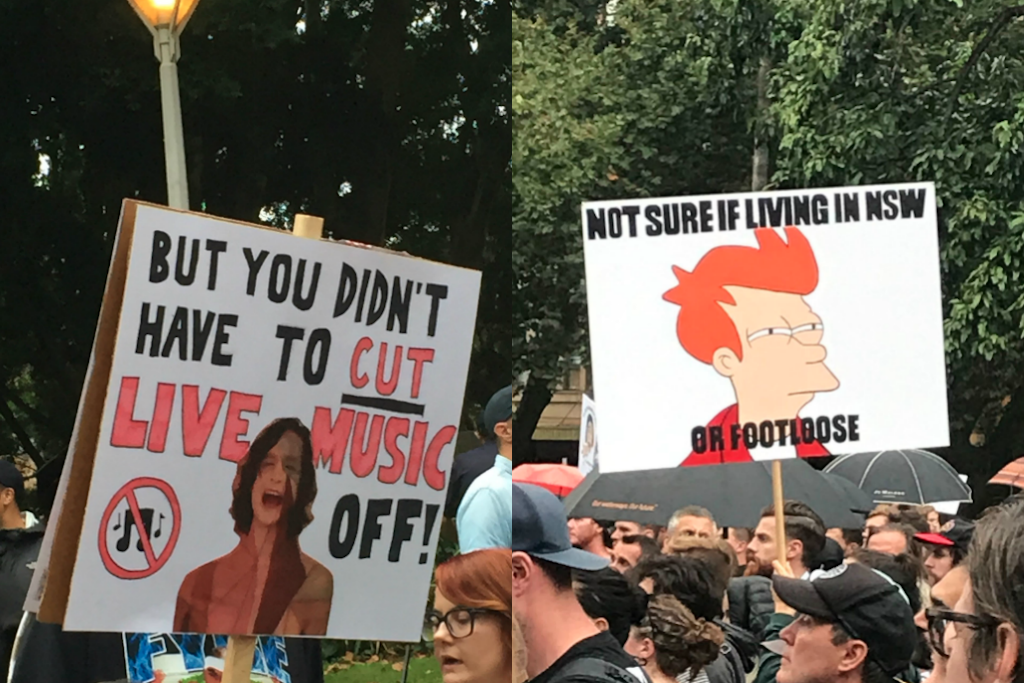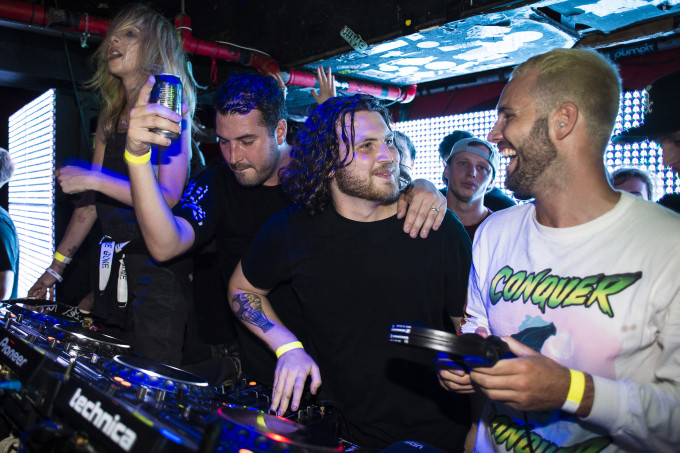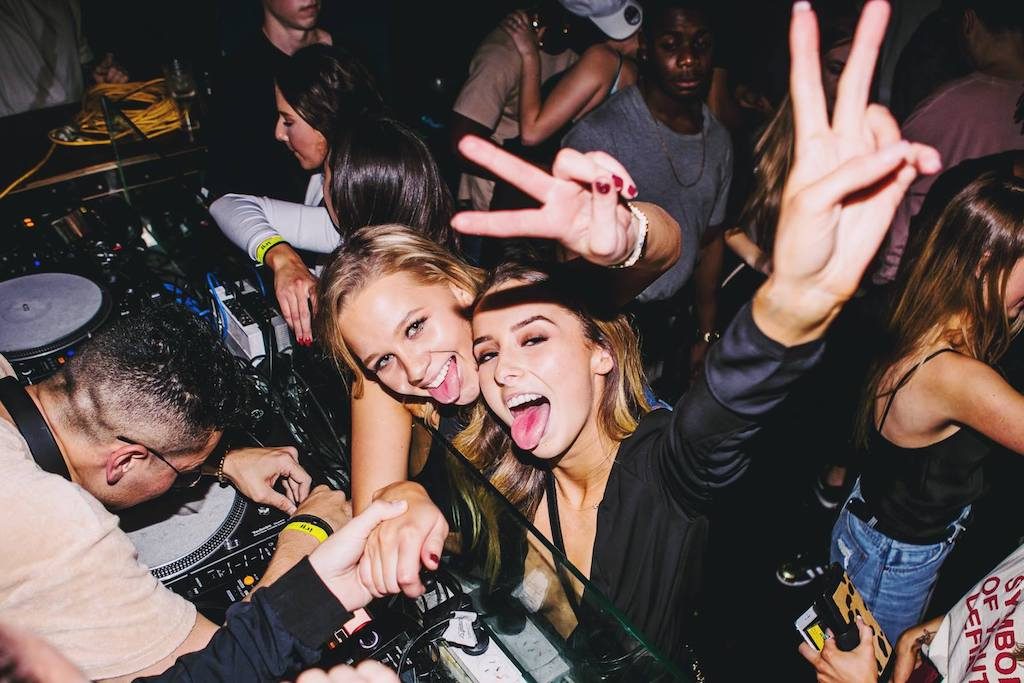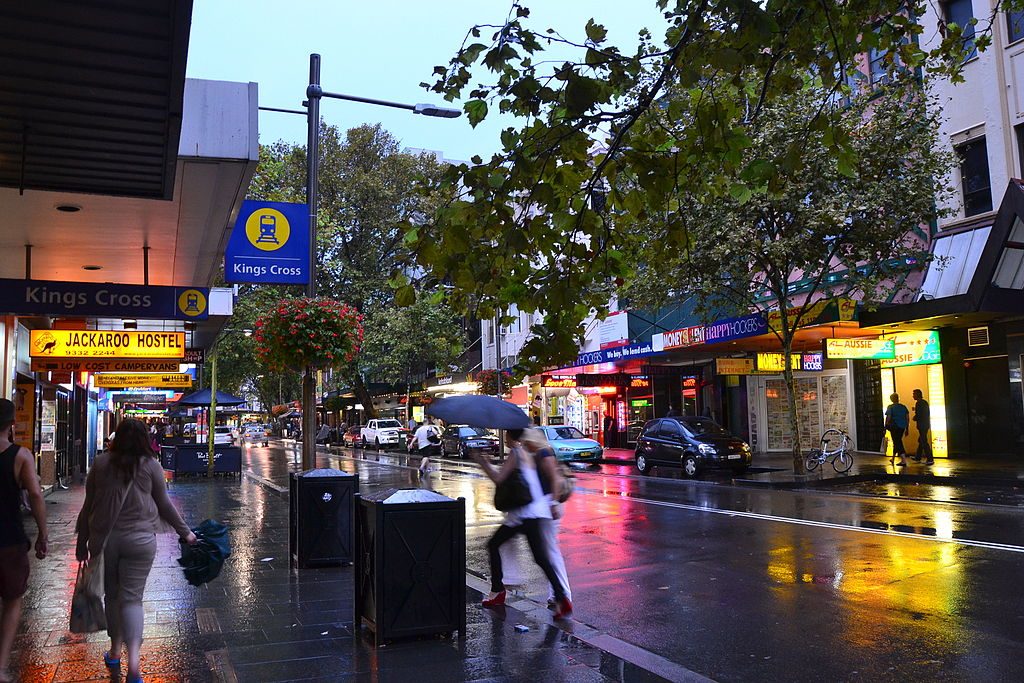After Five Years Of Destruction, What’s Next For Sydney’s Nightlife?
"We need to be as vocal as possible about the fact Sydney is going to be vibrant late at night, once again."

On Sunday morning, Sydney residents awoke to some surprising, and unusually positive, news.
The Daily Telegraph was reporting that the city’s controversial lockout laws would soon be scrapped across the CBD, with Premier Gladys Berejiklian announcing it was “time to enhance Sydney’s nightlife.”
“Sydney is Australia’s only global city and we need our nightlife to reflect that,” the premier said in a statement. “The nighttime economy is a key driver of jobs in our city and we need to do everything we can to strengthen it. Community safety will always be a major focus for my Government, but we certainly need a balanced approach.”
Her comments have come after a heated inquiry into the laws, which saw musicians, promoters, and industry bodies such as APRA AMCOS and ARIA make submissions to, and appear before, a committee lead by Lord Mayor Clover Moore. Among the most alarming evidence given to the committee was the revelation that the city had seen a 10 percent drop in under-35s visiting the city since 2013, and the loss of nearly half of its live music venues. The committee’s full findings will be handed down to parliament at the end of the month.
While the exact details are yet to be announced, it’s expected that the 1.30am venue lockout would be lifted in all areas except Kings Cross; the premier said she would not support any changes to the laws in the suburb given its history of violence. It’s uncertain whether the ‘last drinks’ cut off — currently 3am in the lockout zone — will remain in place.
“I’m more than happy to relax or even repeal the laws depending on the committee’s findings…but [they] have demonstrated we need to find a better balance,” Berejiklian said.
That might go down as one of the more ridiculous understatements of the year. Even without the findings of the committee, the utter decimation of Sydney’s nightlife is obvious to anyone in the city.
Since the laws’ rushed introduction at the beginning of 2014, 176 venues have closed, including beloved nightspots like Goodgod, Backroom, Soho, and Hugo’s. Kings Cross has become a ghost town, foot traffic in the CBD has dropped by 80 percent — and while violence fell in the lockout zone (there’s no one to assault if there’s simply no one there, after all) it significantly increased in other suburbs like Newtown and Bondi.

Source: Junkee Media
So, Why Now?
Berejiklian’s comments represent a dramatic about-face for the NSW Government, which has always been staunchly committed to the laws. Despite a slight (very, very slight) relaxing in 2016, the Liberal government, lead first by Barry O’Farrell, then Mike Baird, and now Gladys Berejiklian, had given every indication that the laws would be kept in place for the foreseeable future. For some, the timing of the announcement is highly suspect.
“I don’t think there is a reason [for the decision now],” Sydney DJ and writer Andrew Levins told Music Junkee. “There’s been so many opportunities for them to address and engage with the community in the last five years and there’s been no attempt at that whatsoever. And for this to come out of nowhere, it’s strange. I speak to venue owners constantly and even a week ago they were saying there was no sign of it ever happening again. There were no rumours of this being a possibility.
“When it comes to the NSW Government it’s hard to believe there isn’t some kind of hidden ulterior motive.”
“So for this to come with this weird backhanded announcement to The Daily Telegraph, who are the reason the fucking lockouts were instigated in the first place, in my opinion, it’s weird. It just feels so random and devoid of any reason. My theory is there is no reason — Gladys woke up on Sunday morning, threw a dart at a wall and it said repeal the lockout laws. And she was like, ‘okay, let’s go’.”
“When it comes to the NSW Government it’s hard to believe there isn’t some kind of hidden ulterior motive, I would say it’s a combination of factors,” says Kiran De Silva of Division Agency, which handles Days Like This festival and Paddington’s Goodbar. “The CBD tram system is supposedly very close to being operational which I’m sure the Liberal government will be pushing to be in use as much as possible given how colossal a mess it’s been already, and there has also been ever mounting activity to restore Sydney’s night time economy from a local government level.
“The City of Sydney rezoning certain areas and continuing to be vocal about a desperate need to rectify our lack of late night culture may have finally sunk in to Gladys Berejiklian.”

Alison Wonderland, Hayden James, Golden Features, and What So Not at Candys Apartment. Photo by Pat Stevenson/Hobogestapo
Where Did The Music Go?
As Music Junkee’s former editor Katie Cunningham wrote prior to the NSW election, the economic numbers are shocking, but the cultural impact of the laws is much harder to quantify. “How do new artists kickstart their careers if there’s nowhere for them to play? What music hasn’t been made because there wasn’t the scene there to foster it?” Cunningham wrote.
Ten years ago, artists like Alison Wonderland, Flume, Golden Features, RÜFÜS DU SOL, Hayden James, Anna Lunoe, and Nina Las Vegas all cut their teeth on the fertile club circuit in the city, and it may be a while until we see the full effects of its destruction. Perhaps the only upside to the laws is that it forced promoters and music makers to look outside the norm — parties like Athletica, Heaps Gay, Girlthing, and festivals like Soft Centre have thrived outside of the city centre, and the easing of the lockouts can only mean bigger and better things.
So predictably, the announcement has been greeted with almost universal jubilation from those in the night time industries.
“It’s pretty exciting! Not only for DJs and artists but for the whole industry,” Sydney DJ and producer KLP told us. “With every DJ there is often a booking agent, a manager, someone that does the artwork, staff that serve drinks, make food, security — the list goes on of how many people the Sydney nightlife economy used to employ, and hopefully it can start to do so again.”
“Ideally it’ll mean more accessibility to venues and the ability to play,” says De Silva. “One of the literal and tangible effects of lockouts was a straight cutting of one-two hours of trade in venues. Having those extra hours restored because a venue can have crowd injections after 1:30am will hopefully in turn allow extra operating hours. It will also hopefully see a surge of investment coming into Sydney’s night time economy and hopefully increase the amount of opportunities young artists can work towards.”
Of course, the change will not only affect artists. The laws completely changed how people go out in Sydney, says De Silva, and ended the concept of “club hopping” — where punters might hit up two or three venues in a night. Almost immediately, people began avoiding going out in the city, causing a massive decline in nightclub attendance.
“Lockouts created a very authoritarian feel, which couldn’t be more counterintuitive to the way people want to feel when they are in nightclubs,” says De Silva.

The World Bar, now closed.
The Way Forward
But now, Sydney has the opportunity to rebuild its fractured nightlife — but it’s not going to be easy. If the NSW Government is serious about enhancing the city’s nightlife, they’ll need to put their money where their mouth is.
“To put in bluntly, [the nightlife economy] needs a massive fiscal injection,” says De Silva. “Along with tons of publicity. We as a city need to be as vocal as possible about the fact Sydney is going to be vibrant late at night, once again. It would be great to see a whole bunch of CBD venues expand and extend their programming. That expansion could be in the form of bringing on new promoters for new events and extra parties, booking more local artists, or simply by being open later because patrons can actually enter the premises. It’s super important that we as a late night industry fully flex the ability to operate without draconian restrictions anymore.”
“We as a city need to be as vocal as possible about the fact Sydney is going to be vibrant late at night, once again.”
“If they’re not going to step in and support, they need to step back and the licensing police need to leave venues alone,” agrees Levins. “I can’t tell you the amount of venue owners that you see, that’ll be having a great time and then suddenly their night is ruined because they’ve just been fined like three separate $600 fines because a security guide was wearing his identification sleeve and it was facing the wrong side of his arm or that they weren’t displaying the right font on their exit sign. They’re the most insane slaps on the wrist — and they’re expensive slaps on the wrist again and again and again.”
In recent months, the behaviour of the NSW Police has been thrown into sharp relief — dubious strip searching protocols, continued and ferocious opposition to harm minimisation measures such a pill testing, and ridiculous licensing crackdowns have frustrated venues owners and festival promoters across the state.
“You never really feel like anyone is trying to work with you,” says Levins, “especially if you are a nightclub that plays hip-hop, you just feel like the police don’t want you…. The end result is them forcing you to close the nightclub down.”
There is, of course, one easy way to support the nightlife economy — by going out, and staying out. “Let’s go out!” Says KLP. “Let’s stay out late and and become a city to be proud of again for it’s amazing and world class nighttime economy.”
“It’ll be a really amazing thing for young people who have only experienced clubbing with lockouts to all of a sudden not have to worry about it,” adds De Silva. “I think it’ll organically create such a liberating feeling and that in itself will create a paradigm shift in the way young people approach their night out.”

Darlinghurst Road in Kings Cross. Source: Sardaka via Wikimedia Commons.
The Kings Cross Conundrum
For now, Gladys Berejiklian has said that the re-opening of Kings Cross is off the table. While it’s disappointing that the once flourishing area won’t be recharged anytime soon, it offers the opportunity for other areas to excel.
“It might be a slightly unpopular opinion but to be honest, Kings Cross did need a massive clean up,” says De Silva. “On weekend nights the area was rife with violence and criminal activity and when you had certain venues employing absolutely no strategy to manage attracting violent patrons, there was always going to be issues.
“We have the opportunity now to create fresh new nightlife precincts and also maintain places like Oxford Street and King Street in Newtown which are still vibrant now. They are also both places that have always promoted equality and diversity and personally I think that’s more important than worrying about Kings Cross.”
“It’s way more constructive to be positive and optimistic,” adds KLP. “The important thing to focus on now is the other areas that can get back to business.”
Levins agrees. “Focus on the positives,” he says. “Every single thing in Sydney has a negative aspect to it. It’s just that nightlife has only had the negatives focused upon in the last five years, and I think it’s time to spotlight the great things that happen at night in Sydney so that people will be encouraged to take part in it again.”
Jules LeFevre is Junkee’s Music Editor. She is on Twitter.




